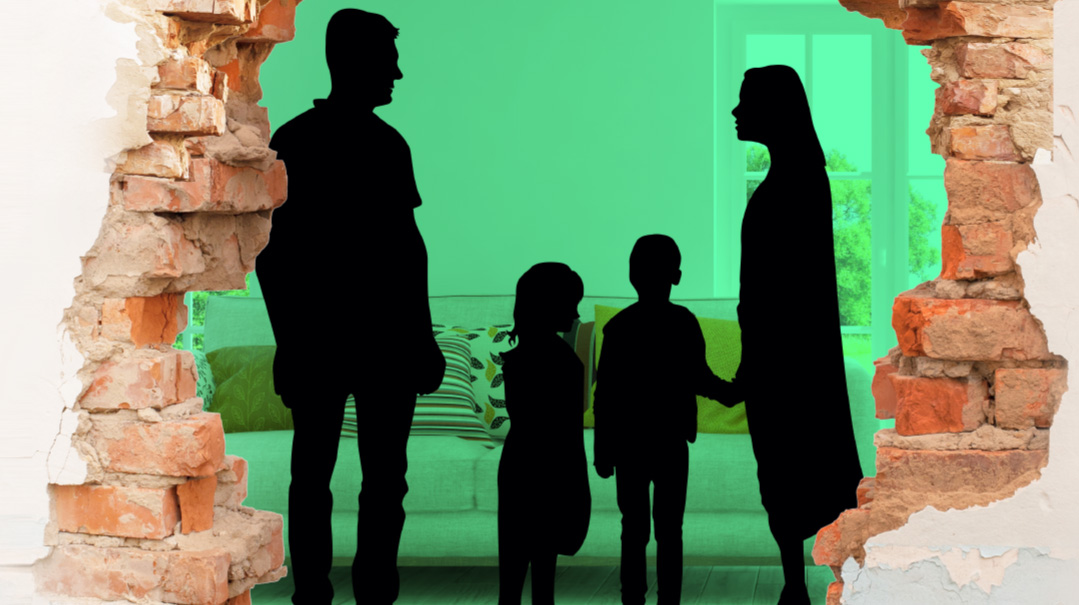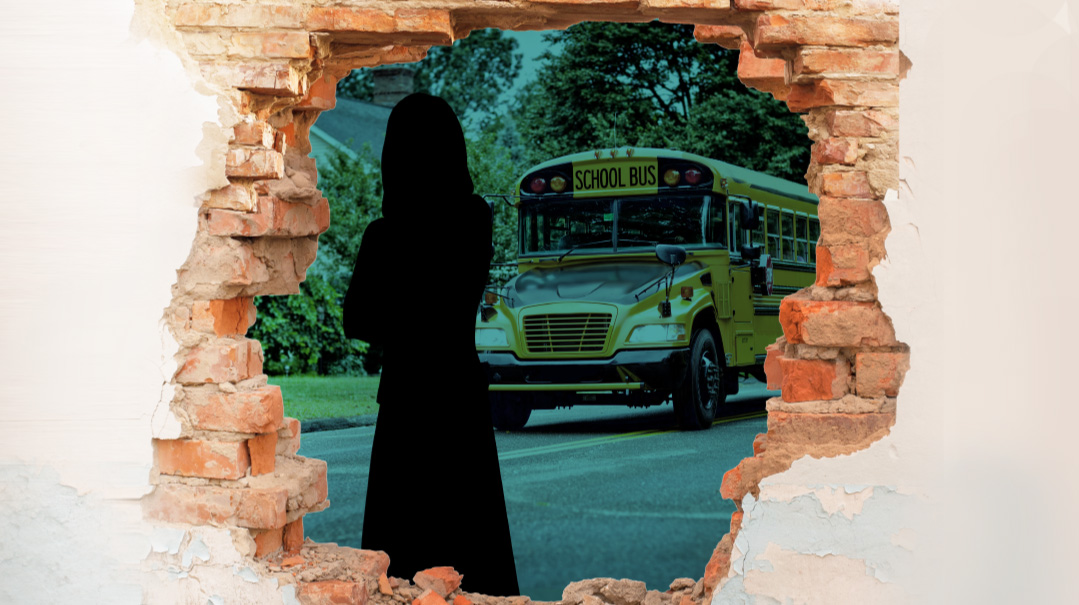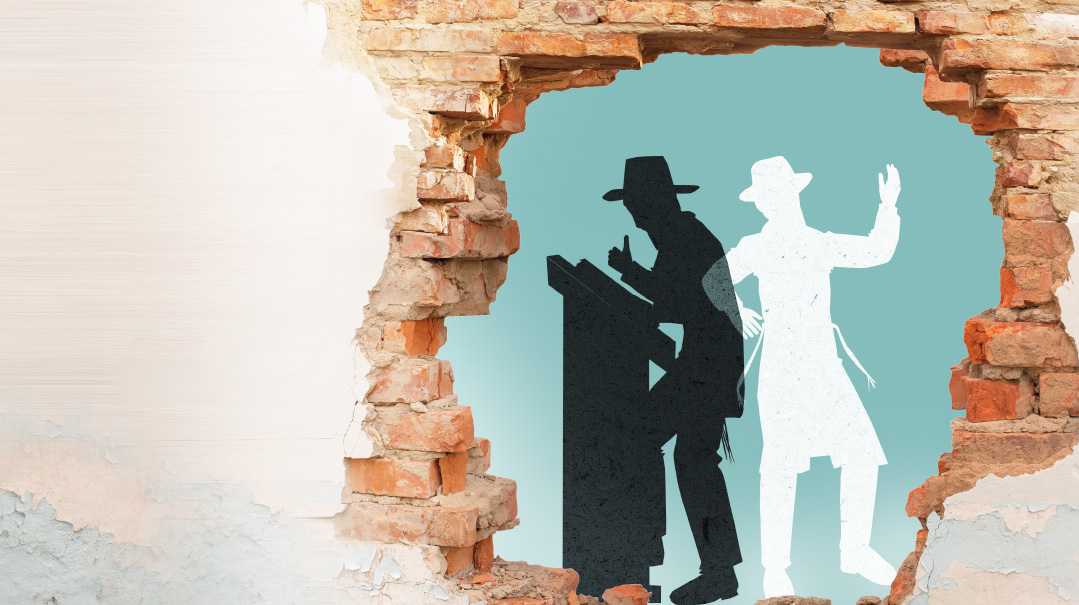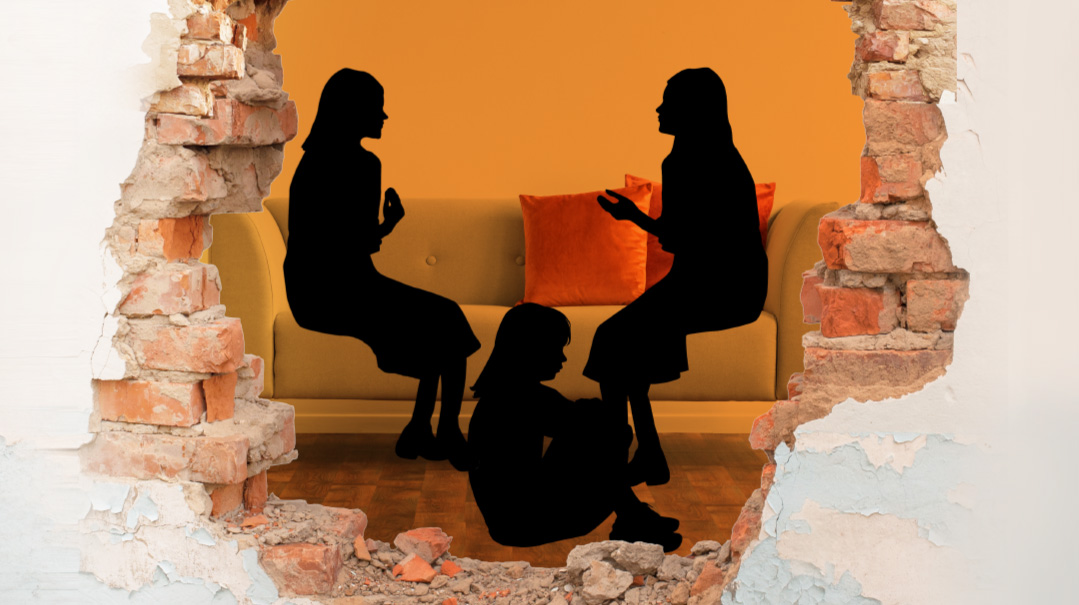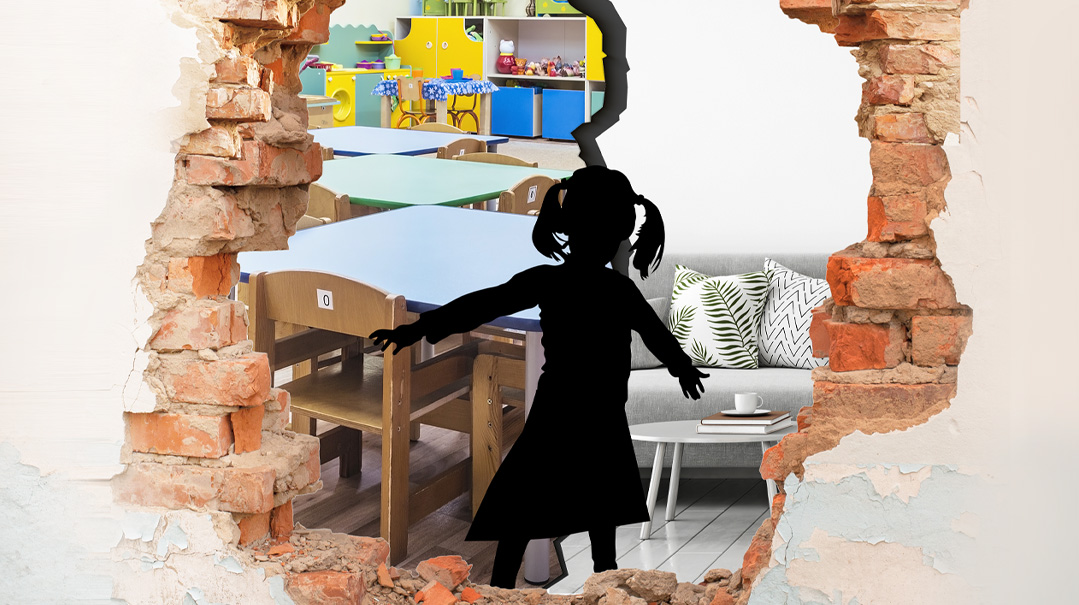My Family vs. Another Essential Need

Do I bow out and leave a void? Or do I have a responsibility beyond the walls of my home?
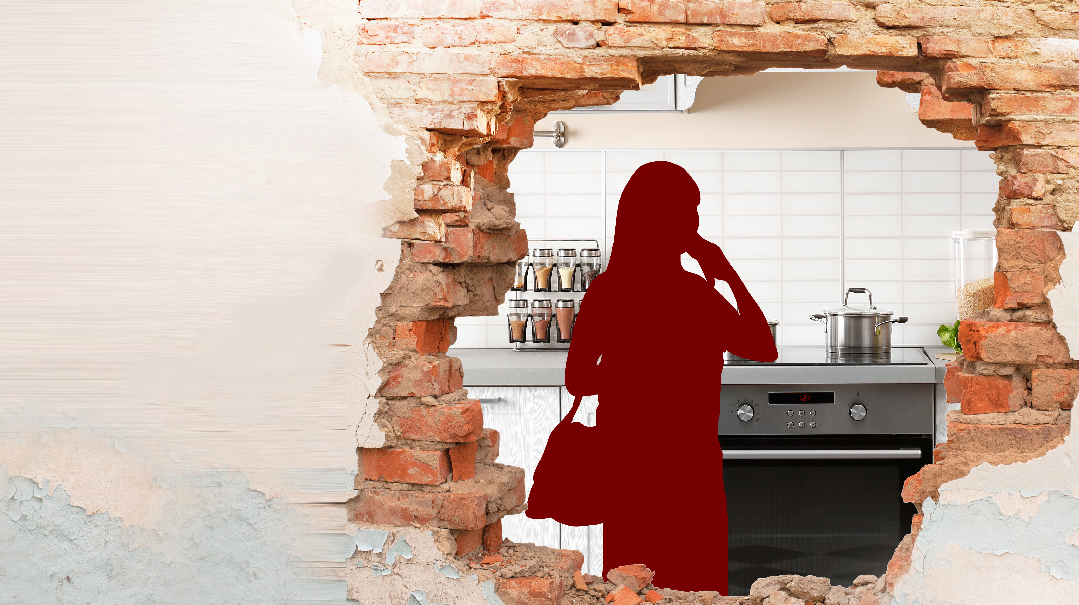
Moderated by Faigy Peritzman
We live in a small out-of-town city where every member of the community makes a difference. When we first moved here, I loved the opportunity to get involved and volunteered for the chevra kaddisha and made meals for families in crisis. Over the years, I’ve become the head of the women’s chevra kaddisha, as well as the coordinator of Meals on Wheels. I feel tremendous satisfaction knowing I’m filling a niche in the community, utilizing my talents and organizational drive to help others in a way that no one else can.
However, as my children are growing older, they’ve become more vocal in their resentment of sharing my time and energies with those outside our family. I try very hard to be there for them, yet obviously my work with the chevra kaddisha cannot be contained to specific time frames, and between that and the meal coordination, I often need to be out of the house just when my kids are home.
I’m torn. Yes, my family is my top priority, but I’m filling an essential need that I don’t see anyone else able to take over, or even assist me. I know the members of our kehillah well, and each one does what they can, in a way that works best for them. Do I bow out and leave a void? Or do I have a responsibility beyond the walls of my home?
Rabbi Avrohom Weinrib is the rav of Congregation Zichron Eliezer in Cincinatti, OH.
Let me begin by congratulating you. Out-of-town living was created for people like you, people who enjoy giving of themselves and really want to make a difference, people who strive to express their incredible inner kochos and who understand the importance of responsibility to others. I believe this is the main reason people choose to live out of town. Our community in Cincinnati is filled with people like yourself, as are all small out-of-town communities.
That said, the dilemma you present is real. The ability to balance it all is something every one of us, out-of-towners and in-towners alike, struggle with. We balance work versus family, personal spiritual growth versus family time; the list goes on and on. Practically everything in life forces us to choose between one value against the other, and it often isn’t clear what takes priority.
However, I believe that in your case, it’s clear. Your own children take precedence over any community need. Period. And if those needs won’t get taken care of, then so be it.
I want to share with you something I heard from my rebbi, Rav Yosef Elefant shlita: Hashem doesn’t need us to take care of the infinite needs that exist in His world. He can take care of all the bikkur cholims, chevra kaddishas, Hatzolahs, and Chaveirims without us. However, He allows us the privilege, the unequivocal zechus of following in His ways of giving, helping, and taking care of others.
But if it’s not the right thing for us to be doing, have no fear. HaKadosh Baruch Hu won’t allow a need to fall through the cracks. He has enough resources to get it taken care of. So when we make a decision to put our family first, there’s no need to feel guilty or worried. We know we’re doing our part and can be assured Hashem is doing His.
There is one crucial point I’d like to add; allow me to do this by sharing our personal journey. For the past nine years, my wife and I were given the greatest blessing we could have envisioned: the opportunity to serve the beautiful frum community of Cincinnati, Ohio. The responsibilities, as you might imagine, are taxing and, at many points along the journey, we felt ourselves faced with a similar dilemma as you describe — how do we balance it all?
We adopted two working strategies. First: Exude positivity. No matter how many phone calls, last-minute suppers, or heartbreaking hospital visits are part of our responsibilities, we owe it to our kids to remain positive. More importantly, we want to share with them the joy, the beauty, and the privilege of being able to serve Hashem’s People.
The second is more practical: Include your children. To whatever extent possible, turn whatever you’re involved in into a family project. Let your children feel the sweetness of doing for others, let them bask in the warmth of HaKadosh Baruch Hu’s shadow when imitating Him. Even our six-year-old has found his niche by delivering weekly Shabbos food to a person in need who lives nearby. On so many levels this solves the balancing dilemma. It’s no longer a choice between family and community. Community projects become a bonding experience, and foster both joy and pride in the process.
Allow me to conclude with how I began. Congratulations — you’re doing incredible things. Every community has a mysterious “They.” “They” will take of it, “They” will clear up after the event, “They” will hire transportation. Few are aware of who the “They” are. But you and your family do know. You are the “They” that help make your community thrive.
May you have continued hatzlachah in all your avodas hakodesh.
Rebbetzin Michal Cohen, LCSW, is the rebbetzin of Congregation Adas Yeshurun in Chicago for the past 35 years. She works in social services as well as in private practice, and is the director of kallah education for Daughters of Israel.
I really love your question because it speaks to our number-one challenge: Raising kids! It’s such a hard job. Our children’s needs are never-ending, we don’t get any breaks, the pay is poor and the glory, well… Let’s face it — some of us enjoy this stage of life and some of us struggle. Still, we’re all unequivocally obligated to be the best parents we possibly can be, because our children are relying on us.
The real question here is the issue of priorities. We certainly can, and often must, do other things as we raise our children. Yet, we know — and our children certainly know — what really drives us, where our passions lie. Many parents work long hours and can’t always be there for their children, but their kids sense when this is a necessity and when it’s a choice.
In your case, since your work out of the house is voluntary, it adds to the challenge. Now that your kids are older, they understand that the things you do for others are taking you away from them, and they simply aren’t okay with that.
Truthfully, they’re right — they shouldn’t be okay with that. They need you and have a right to you, and no one can take your place. Even though the jobs you do for the community are very important, they’re not your responsibility alone. But your obligation to your family is yours alone, so they take precedence.
As a therapist, I’ve heard way too much pain from adults who felt alone as children. They may have been physically cared for, but did not feel like they had enough time with their parents, especially quality time, when their emotional needs were met on a regular basis. Children have a very sensitive radar and they can tell where their parent’s heart lies, even if she’s standing right in front of them. The feeling our children get from knowing that we’re taking care of them, and that we want to be there taking care of them, plants the seed for their ability to trust. This is crucial both for their development of trust in Hashem and also their ability to trust themselves and others.
Our children’s ability to develop safe boundaries depends on them having a strong sense of self and security. And the way they develop this is by knowing they’re surrounded by unconditional love and shelter.
It’s our job to ingrain in our children a deep awareness that we’re there for them. This doesn’t mean playing helicopter mom, but conveying to them that we’re their go-to person, and that they can count on us to help them through whatever is going on.
No matter how we spend our time during the day, whether we work out of the home or not, we’re always so busy. We need to find time to talk to our kids, show interest in their days, and provide predictable structure for them.
I’m not suggesting that we mothers can’t do other things while raising our kids. We certainly can and often we should! However, not at the expense of our kids. Since your volunteer work is often unpredictable and overlaps on the times your children need you most, your family will not be understanding of this and will resent it. Those whom you help within the community are surely appreciative, but if you can’t do the job, they’re not likely to suffer emotionally. This isn’t true for your family. They’ll resent being put on the back burner.
The job we’ve been given as parents may seem overwhelming at times, but clearly, we’re trusted by Hashem to do this. Seeking guidance is our way of saying I want to be successful at this mission. And let’s not forget that life will not always stay like this. Our kids will grow up and leave home and our time will become more flexible. Those will be the years when you can focus on other responsibilities, without the risk of hurting those who are most important to you.
Our children are our legacy; let’s give them what they — and we — deserve. May Hashem guide you in your avodas hakodesh.
Tova Rabinowitz is the rebbetzin of Congregation Beth Israel in Malden, MA, for the past 23 years.
Your question resonated with me, as this was a challenge I often faced when my children were young. Ultimately, my decisions were based on the premise that my family comes first.
However, I did try to give to my community in ways that wouldn’t compromise that basic premise. This included many areas where I was able to be there for the shul and its members while including my family in the process. My children participated in practically every event (even if it meant going to bed later than usual) and they helped me cook and shop.
We hosted many guests for Shabbos and Yom Tov meals. Even as we entertained our guests, we always made sure to stay focused on the kids and, when appropriate, allowed them to participate in our conversations with their questions and comments. The kids were a big part of the entertainment!
Because the members of our community saw I was serious about my commitment to them, they were able to accept the areas in which I couldn’t participate due to my family. I tried giving shiurim in my house when my young children were already in bed, but it didn’t work. When I had to stop, no one felt that I was pulling back. They all appreciated and respected my responsibility to my children.
If I had to be away from my children for community needs, I made sure to balance that with not attending a friend’s simchah or other personal outings to be home with them.
My husband and I went out of the way to make sure our children knew they were our priority. Despite his busy schedule as a rav, we always had suppertime together with my husband. They needed to know they weren’t losing out due to his obligations.
Once, we were in the middle of winter vacation, when my husband had to return for a levayah in the community, curtailing our vacation by a day. That day, I took the children out all afternoon — for lunch, to museums, filling up that extra time so they wouldn’t feel deprived by their shortened vacation.
It’s all a question of priorities, and your children must be yours. Yet, it’s also about attitude and open communication. Explain to your children what you’re doing and why. I’d talk to mine about the sechar that one gets for helping the klal, and how they get sechar in their parent’s mitzvah by allowing them to be away at times when they may want them home.
My children are all grown now, and I asked each one what their feelings are about having grown up in such a setting. They were all in agreement that we were always there for them.
It is possible to nurture your family and still be available to give to others. May Hashem help you find your balance and may you be successful in both these missions of avodas Hashem.
(Originally featured in Family First, Issue 736)
Oops! We could not locate your form.







